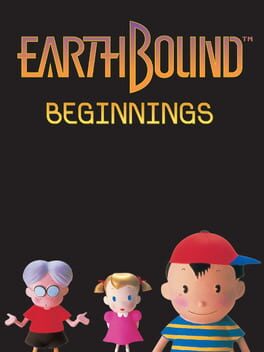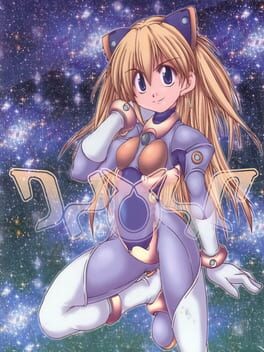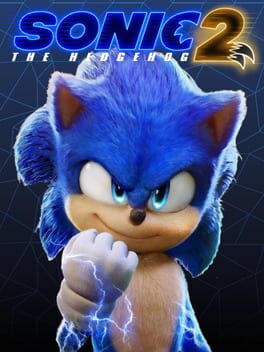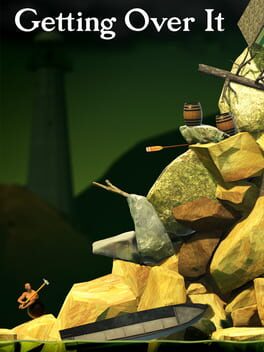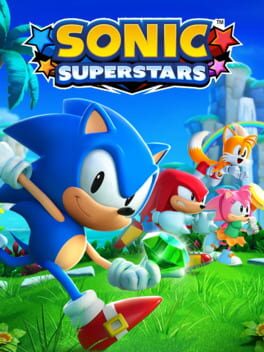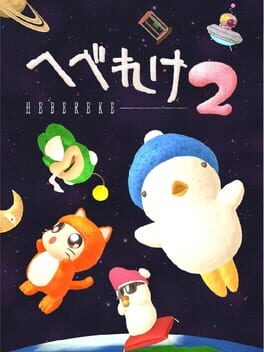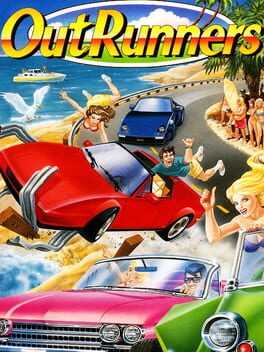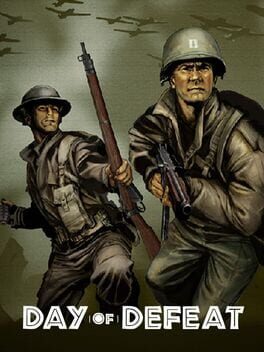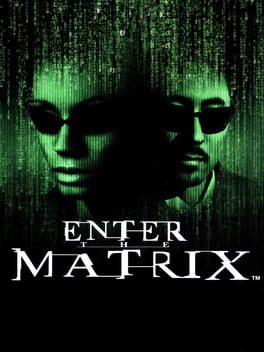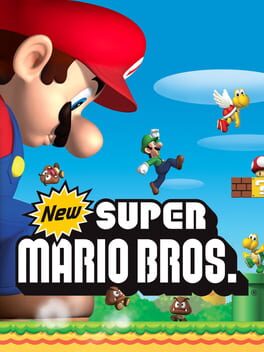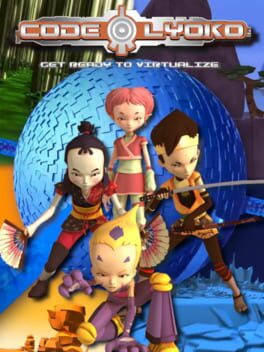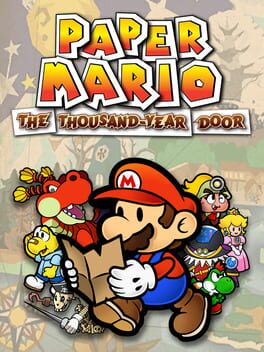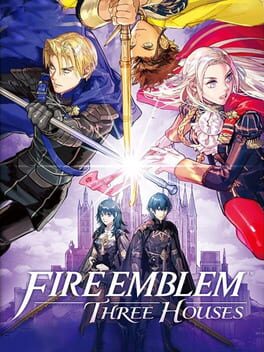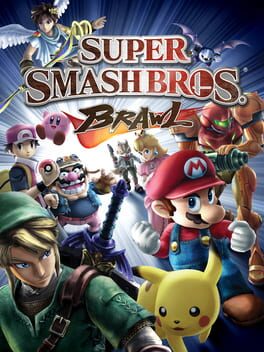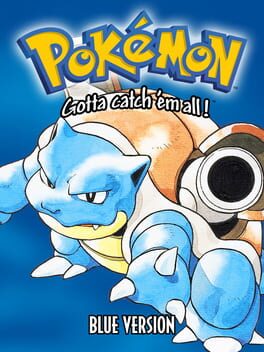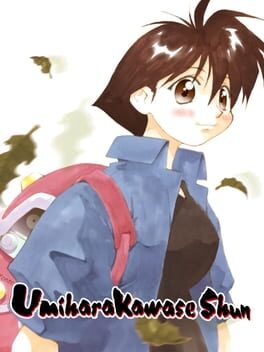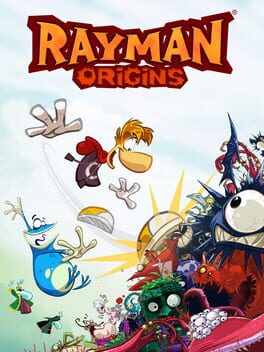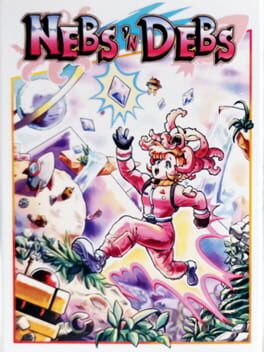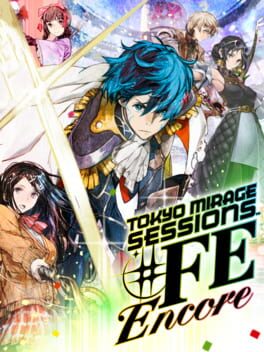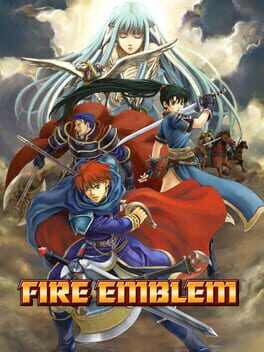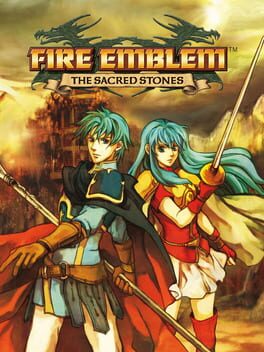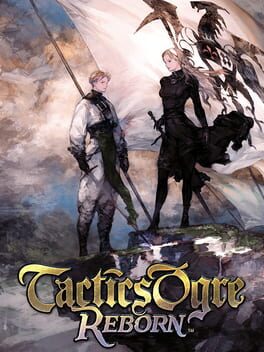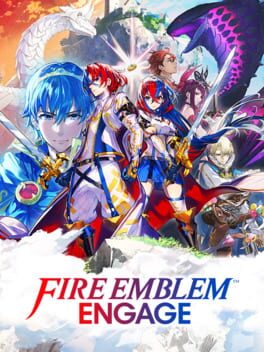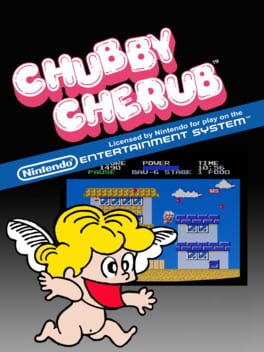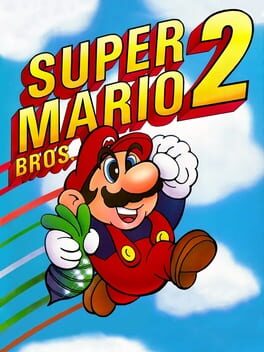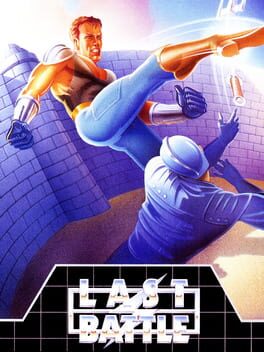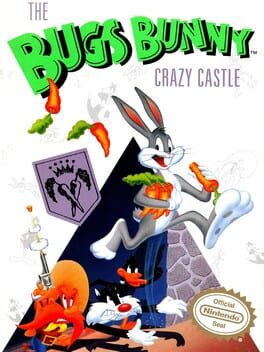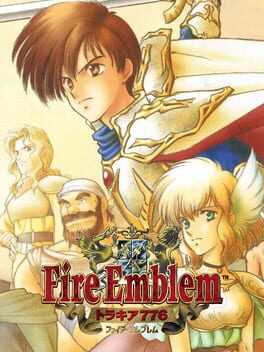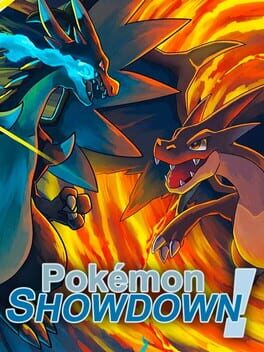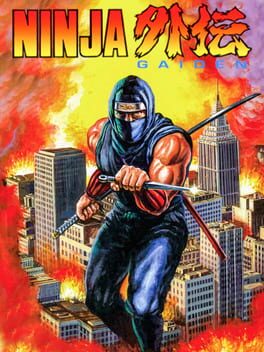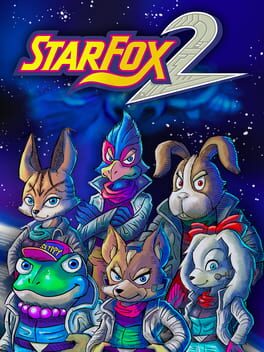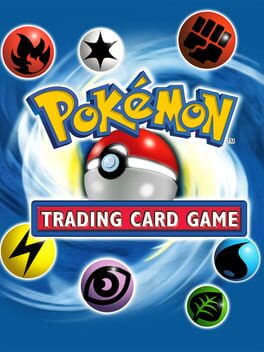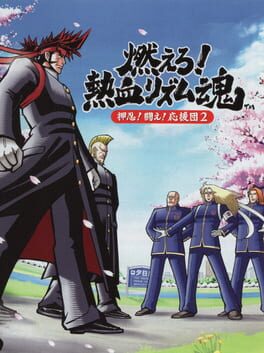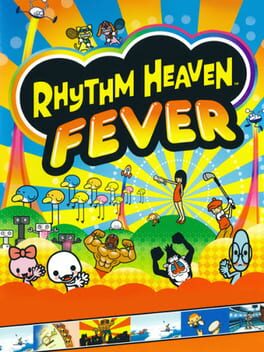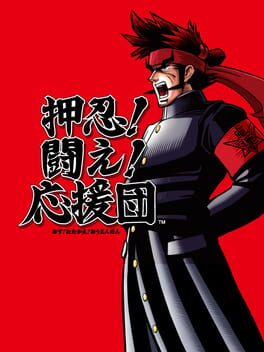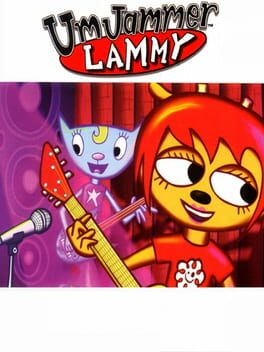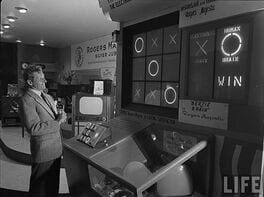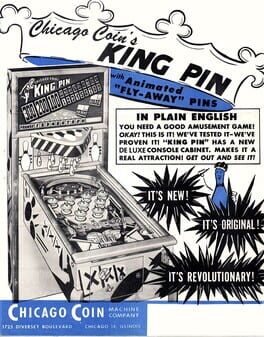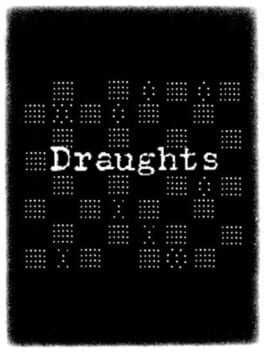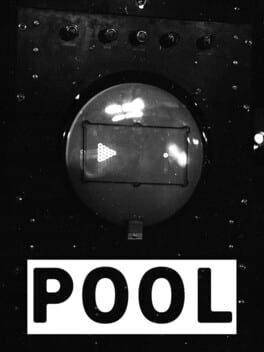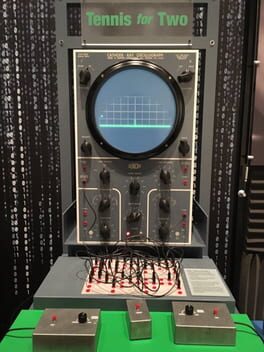TailoredMuffin
1010 reviews liked by TailoredMuffin
Mother
1989
This review contains spoilers
When my backlog wheel landed on this for me to play, I was beyond hyped. This game, after all, jumpstarted one of Nintendo's most unusual and influential franchises, and would go on to inspire masterpieces of its own. Hell, freaking Yume Nikki has a whole world referencing bits of Mother 1, and that's easily one of the most original and experimental titles ever conceived. So it paying homage to this game must mean a lot.
Well, I'm just going to say straight off the bat: this game induces suffering. Every cool mechanic you know and love about the MOTHER series, this one does not have. That means no rolling HP, no psychedelic background, and random encounters. On top of that, I found the game had a ton of balancing issues. On a whim, the right enemies can bind you into a lock, with hardly a chance of breaking free from it. The cherry on top has to be Mt. Itoi, which is from what I've heard never playtested 💀 Nintendo really smoked crack on their part. I thank myself that I had a guide and an emulator to speed up the battles when I needed to.
All the little gameplay quirks really got to me at first with the inventory management and shops but once I started to view everything from the perspective of real life, it made sense. Of course you're not going to be able to hold a whole lot, and you're going to have to swap around goods so that it can be usable. Of course you're being charged an egregious sum just to see your friends revived. Of course, instead of simply interacting with the ATM, you have to open your inventory, scroll to the Cash Card, and hit use. It makes so much sense. That also goes for having the train animation play whenever you use it, and your dad blabbing on and on before you get to the point.
I think the smartest I ever felt when viewing this game through that lens would be when Lloyd joins your party. The game tells you that he's a weakling, and he has the low stats to back that up. The most useful he gets is using gadgets that break often. I asked myself, "why would the game deliberately give you a weak party member?" Then it hit me. Of course, if you were to go on an adventure with your friends chances are you're going to have drag the dorky kid along with you. They're not all combat ready. I love how the game then ties up Lloyd's character with the typical "I'm going to prove myself" arc.
But, those quirks didn't make me fall in love with the game though. After all, this game had indeed made me ragequit, to the point where I would take weeklong breaks from the game when it's not even that long. As I mentioned to my friends, it's art in the same way that a bully beats you up and your mom gives you grilled cheese and apple slices to help make you feel better.
It was the end that the game really got to me. Out of nowhere, I started crying after Ninten sang the Eight Melodies to Queen Maria. She started talking about Geigue and how he was when she raised him, and how his tail would always wag like a dog except for when she sang that lullaby. I was seriously fighting back tears (which I was told NOT to cry about yet, thanks Mother fandom) because the way she talked about him sounded exactly like a loving grandmother on her deathbed, recalling all the fun little memories she had with her grandchildren before passing away peacefully. And then Magicant disappearing, a place that said to always have a loving home for Ninten, felt like the emptiness I felt when my grandmother passed away. I haven't actually properly cried for her passing away, and I haven't done so for over 10 years now. But now I definitely feel like I've let out some of the deep-seeded pain. Even while writing this review, tears are dripping down my face.
So yeah, the ending manages to pick everything back up all at once. It's really not fair of me to attach a score to this game because of how deep the emotions run with it. I feel the same about this game as I do with my own life. It sucks a lot. I've been through a lot of mental pain. But there are just those tender moments, like dancing on the stage, or walking around the elementary school, or sharing a close bond with Ana, that really just make it charming. And then sometimes, it really turns out for the better.
In short, if you're able to love a piece of art, thorns and all, then I definitely recommend it provided you promise me you won't get hurt too much by it. Because this game hurts a lot but man I'm glad to have gone through it.
Well, I'm just going to say straight off the bat: this game induces suffering. Every cool mechanic you know and love about the MOTHER series, this one does not have. That means no rolling HP, no psychedelic background, and random encounters. On top of that, I found the game had a ton of balancing issues. On a whim, the right enemies can bind you into a lock, with hardly a chance of breaking free from it. The cherry on top has to be Mt. Itoi, which is from what I've heard never playtested 💀 Nintendo really smoked crack on their part. I thank myself that I had a guide and an emulator to speed up the battles when I needed to.
All the little gameplay quirks really got to me at first with the inventory management and shops but once I started to view everything from the perspective of real life, it made sense. Of course you're not going to be able to hold a whole lot, and you're going to have to swap around goods so that it can be usable. Of course you're being charged an egregious sum just to see your friends revived. Of course, instead of simply interacting with the ATM, you have to open your inventory, scroll to the Cash Card, and hit use. It makes so much sense. That also goes for having the train animation play whenever you use it, and your dad blabbing on and on before you get to the point.
I think the smartest I ever felt when viewing this game through that lens would be when Lloyd joins your party. The game tells you that he's a weakling, and he has the low stats to back that up. The most useful he gets is using gadgets that break often. I asked myself, "why would the game deliberately give you a weak party member?" Then it hit me. Of course, if you were to go on an adventure with your friends chances are you're going to have drag the dorky kid along with you. They're not all combat ready. I love how the game then ties up Lloyd's character with the typical "I'm going to prove myself" arc.
But, those quirks didn't make me fall in love with the game though. After all, this game had indeed made me ragequit, to the point where I would take weeklong breaks from the game when it's not even that long. As I mentioned to my friends, it's art in the same way that a bully beats you up and your mom gives you grilled cheese and apple slices to help make you feel better.
It was the end that the game really got to me. Out of nowhere, I started crying after Ninten sang the Eight Melodies to Queen Maria. She started talking about Geigue and how he was when she raised him, and how his tail would always wag like a dog except for when she sang that lullaby. I was seriously fighting back tears (which I was told NOT to cry about yet, thanks Mother fandom) because the way she talked about him sounded exactly like a loving grandmother on her deathbed, recalling all the fun little memories she had with her grandchildren before passing away peacefully. And then Magicant disappearing, a place that said to always have a loving home for Ninten, felt like the emptiness I felt when my grandmother passed away. I haven't actually properly cried for her passing away, and I haven't done so for over 10 years now. But now I definitely feel like I've let out some of the deep-seeded pain. Even while writing this review, tears are dripping down my face.
So yeah, the ending manages to pick everything back up all at once. It's really not fair of me to attach a score to this game because of how deep the emotions run with it. I feel the same about this game as I do with my own life. It sucks a lot. I've been through a lot of mental pain. But there are just those tender moments, like dancing on the stage, or walking around the elementary school, or sharing a close bond with Ana, that really just make it charming. And then sometimes, it really turns out for the better.
In short, if you're able to love a piece of art, thorns and all, then I definitely recommend it provided you promise me you won't get hurt too much by it. Because this game hurts a lot but man I'm glad to have gone through it.
Oh since this one exists too, I'll just mention how much I need Mother 3 to have an equally terrible name if they ever localize it (they won't). I need to see the Mother fandom squirm in agony getting told "Um, actually it's called Earthbound: The Ending". Not in a malicious way but just that it's funny to cause petty problems like that.
_____
2014
Abstracting and replicating patterns in harmonizing ways are some of humanity's greatest strengths as a species. Everyone knows nothing is created and that it’s all transformed, but the way in which we apply this logic in creating media is what determines whether our names shall be salvaged by history books or left to rot alongside us. When a groundbreaking title, such as a videogame, is released, everyone wants to have a piece of their own, inevitably trying to subtract what was essential for its success and applying it in different areas, in the hopes of either improving the new established norm or trying to find some success with different audiences drawn out by its newly attained fame. We always fail to take into consideration however, that even the most revolutionary discoveries like gravity, needed some sort of apple like object from somewhere else, to be fully remodeled into a genuine theory.
Dodonpachi, the cult bullet hell from ‘97 didn’t invent the shmup wheel by any means, but it improved on it massively, to the point that the symbol of the game, a quirked up bee, slowly became a cult icon for gaming as a whole. Taking direct inspiration from what it worked previously from games beloved by the recently formed STG fans, it abstracted what worked from games made by Toaplan and Raizing, to produce what some consider to be one of the most important titles to the genre of all time. One of the areas in which Dodonpachi is really memorable, is the story which it tells, mostly because you are treated with no explanations ingame for what's happening until shit hits the fan. The style in which Cave would later adopt regarding exposition would improve in their subsequent titles, however the lack of questions answered in obtuse narratives was not only kept as an already established genre tradition, but was also utterly solidified as one, as the question "Why copy this part too, sir?" wasn't asked enough times.
A lot of classic 90's and 00’s shoot ‘em ups have stories that pass flashing by as remnants of a proper one, due to the nature of how arcade titles were consumed, and how expensive it was to produce cutscenes, usually being reserved for openings made solely to attract new players. What is happening to the characters during the screen flashes of ESP Ra.De? Who are they fighting for in Progear? What do Ikaruga passages between levels tell me about the world? Even games that try to be more in your face, without the previously established archaic arcade limitations, that uphold proper dialogue such as Zero Ranger, Radiant Silvergun and the Touhou series, still give a sensation that something you can’t quite point out is missing whenever you think about the grand scheme of things, almost as if you joined a movie in the second half. The narrative of a classic shmup game are most of the time just the aesthetics, and that's not necessarily bad.
By being exposed to small glimpses of the situation your character finds themselves in, only the pastiche of war stories such as Aces High or Secret Invasion, and other heroic warfare tales being told by shonen anime lenses, remain. In the end it wouldn’t make much of a difference, would it? Your very nature as a player of just assuming the position of an underwhelmingly small war machine, bravely dismantling a whole army just by yourself, requires no explanations, instead just being relegated to something similar as the climax of a mindless yet amazingly produced power fantasy movie. Of course, not all games need to have complex stories (or stories at all), but it makes me wonder if this was a deliberate artistic choice or one made to maximize profit. I believe this unpronounceable title to be the first legitimate subversive shmup story, but to properly explain that let’s talk first about this genre's conventions.
Both in game and in the menus, your eyes will be assaulted by 28 different symbols that substitute not only our usual aramaic alphabet, but our precious arabic numbers as well. Trying to understand what’s happening in the game might seem like an easy task at first if you ignore the dialogue, however eventually you’ll notice that the alien appearance of the game also extends to the way your trusty weapon works. You only have 2 buttons besides the one that pauses, one for shooting and one for switching weapons, which I’ll be calling the cross arrangement since it has no official name and because I think it sounds cool (also because until you master it, you better pray for it).
The way the cross arrangement works is that you’ll spend approximately half a second without shooting and the last input in which you pressed (moving, shooting or even doing nothing at all) will change your shooting pattern, from wide, to more focused, aimed backwards, X shaped, auto guiding… and so on. Early on you have 4 patterns to which you can transition easily, however you can find up to 24 more by shooting on the screen in some specific areas to unlock way more, expanding in your options. Ranging from a curse and a blessing, you might panic sometimes not knowing to which pattern you can transition from. It’s a very unique sensation that I felt during a desperate struggle to maintain control of my own weapons, in an increasingly difficult double edged overly complicated system.
There is a menu dedicated to leveling up, however because you can’t interpret what’s on screen, it’s a question of trying to decipher how far off from getting an upgrade you are. Even worse, if you gather points by playing solely the last levels, the algorithm doesn’t bend back to upgrade your early necessities, in an incredibly bizarre way that feels like you can only buy such upgrades if you have enough money, but not too much in your wallet. Applying and understanding how each and everyone works (except the obligatory life upgrade), is another challenge in itself, even after beating the game 2 times to make this review, I still don’t properly understand what they do. Googling for help the day before was hilarious, because not only I was trying to understand a really cryptic and specific tool in the game, but also I couldn’t find a way to look for the title’s name itself, as just searching ‘_____’ showed me results similar to the peculiar I’m Feeling Lucky button.
The way in which the story is told is not exactly what you think it is from such an offbeat shoot ‘em up. Riding through different planets with small transitions only to fight against seemingly similar enemies from the ones before, just to encounter a rival that fights using your own moves while speaking complete gibberish, is something that feels oddly familiar, even if you can’t point out a specific title that does it. The alienation to which we have been exposed to STG narratives existed even in its infancy in the 80’s, when it was filled to the brim with nonspecific all-encompassing space odysseys, striking back once again with added relatively modern shmup anime lenses from the 90’s and 00’s laid back game design choices of continuing in a multitude of ways, to the mix. The proper ending of the game made it all worth it, explaining not only the stylistic choices found in this peculiar galaxy adventure, but also the very nature of this game release, which I won’t spoil because I think it is particularly genius. Consider this a challenge to beat the game, for everyone who’s reading.
For a title to have such a unique and hard way to find, it sure was made by a studio that covers itself with unusual stylistic choices aimed directly at those who end up stumbling on the title, like someone who just found out a secret pile of gold. Just to give some small context about Platine Dispositif, they had a game vanish from Steam, in which you had to unlock the ability to walk. Obscurity by choice in a game that plays itself as being an abstracted version of repeating the genre’s usual staples while still carrying purposefully unfamiliar visuals and mechanics that forces you to abstract the genre’s conventions on your own, is what some may call ‘art’. Being inventive even in the way in which it was released, as to having such a name that the only video I could find about it attached a "?" to the game’s title, is a very unfamiliar sensation in the medium of video games. From a regurgitating genre full of familiar sameness, this unpronounceable title shines, in the bottom of everyone’s obscure radar, as a certified shmup ultra obscure classic.
Now, pray and tell me oh local Backloggd user.
How did you even find this page?
Dodonpachi, the cult bullet hell from ‘97 didn’t invent the shmup wheel by any means, but it improved on it massively, to the point that the symbol of the game, a quirked up bee, slowly became a cult icon for gaming as a whole. Taking direct inspiration from what it worked previously from games beloved by the recently formed STG fans, it abstracted what worked from games made by Toaplan and Raizing, to produce what some consider to be one of the most important titles to the genre of all time. One of the areas in which Dodonpachi is really memorable, is the story which it tells, mostly because you are treated with no explanations ingame for what's happening until shit hits the fan. The style in which Cave would later adopt regarding exposition would improve in their subsequent titles, however the lack of questions answered in obtuse narratives was not only kept as an already established genre tradition, but was also utterly solidified as one, as the question "Why copy this part too, sir?" wasn't asked enough times.
A lot of classic 90's and 00’s shoot ‘em ups have stories that pass flashing by as remnants of a proper one, due to the nature of how arcade titles were consumed, and how expensive it was to produce cutscenes, usually being reserved for openings made solely to attract new players. What is happening to the characters during the screen flashes of ESP Ra.De? Who are they fighting for in Progear? What do Ikaruga passages between levels tell me about the world? Even games that try to be more in your face, without the previously established archaic arcade limitations, that uphold proper dialogue such as Zero Ranger, Radiant Silvergun and the Touhou series, still give a sensation that something you can’t quite point out is missing whenever you think about the grand scheme of things, almost as if you joined a movie in the second half. The narrative of a classic shmup game are most of the time just the aesthetics, and that's not necessarily bad.
By being exposed to small glimpses of the situation your character finds themselves in, only the pastiche of war stories such as Aces High or Secret Invasion, and other heroic warfare tales being told by shonen anime lenses, remain. In the end it wouldn’t make much of a difference, would it? Your very nature as a player of just assuming the position of an underwhelmingly small war machine, bravely dismantling a whole army just by yourself, requires no explanations, instead just being relegated to something similar as the climax of a mindless yet amazingly produced power fantasy movie. Of course, not all games need to have complex stories (or stories at all), but it makes me wonder if this was a deliberate artistic choice or one made to maximize profit. I believe this unpronounceable title to be the first legitimate subversive shmup story, but to properly explain that let’s talk first about this genre's conventions.
Both in game and in the menus, your eyes will be assaulted by 28 different symbols that substitute not only our usual aramaic alphabet, but our precious arabic numbers as well. Trying to understand what’s happening in the game might seem like an easy task at first if you ignore the dialogue, however eventually you’ll notice that the alien appearance of the game also extends to the way your trusty weapon works. You only have 2 buttons besides the one that pauses, one for shooting and one for switching weapons, which I’ll be calling the cross arrangement since it has no official name and because I think it sounds cool (also because until you master it, you better pray for it).
The way the cross arrangement works is that you’ll spend approximately half a second without shooting and the last input in which you pressed (moving, shooting or even doing nothing at all) will change your shooting pattern, from wide, to more focused, aimed backwards, X shaped, auto guiding… and so on. Early on you have 4 patterns to which you can transition easily, however you can find up to 24 more by shooting on the screen in some specific areas to unlock way more, expanding in your options. Ranging from a curse and a blessing, you might panic sometimes not knowing to which pattern you can transition from. It’s a very unique sensation that I felt during a desperate struggle to maintain control of my own weapons, in an increasingly difficult double edged overly complicated system.
There is a menu dedicated to leveling up, however because you can’t interpret what’s on screen, it’s a question of trying to decipher how far off from getting an upgrade you are. Even worse, if you gather points by playing solely the last levels, the algorithm doesn’t bend back to upgrade your early necessities, in an incredibly bizarre way that feels like you can only buy such upgrades if you have enough money, but not too much in your wallet. Applying and understanding how each and everyone works (except the obligatory life upgrade), is another challenge in itself, even after beating the game 2 times to make this review, I still don’t properly understand what they do. Googling for help the day before was hilarious, because not only I was trying to understand a really cryptic and specific tool in the game, but also I couldn’t find a way to look for the title’s name itself, as just searching ‘_____’ showed me results similar to the peculiar I’m Feeling Lucky button.
The way in which the story is told is not exactly what you think it is from such an offbeat shoot ‘em up. Riding through different planets with small transitions only to fight against seemingly similar enemies from the ones before, just to encounter a rival that fights using your own moves while speaking complete gibberish, is something that feels oddly familiar, even if you can’t point out a specific title that does it. The alienation to which we have been exposed to STG narratives existed even in its infancy in the 80’s, when it was filled to the brim with nonspecific all-encompassing space odysseys, striking back once again with added relatively modern shmup anime lenses from the 90’s and 00’s laid back game design choices of continuing in a multitude of ways, to the mix. The proper ending of the game made it all worth it, explaining not only the stylistic choices found in this peculiar galaxy adventure, but also the very nature of this game release, which I won’t spoil because I think it is particularly genius. Consider this a challenge to beat the game, for everyone who’s reading.
For a title to have such a unique and hard way to find, it sure was made by a studio that covers itself with unusual stylistic choices aimed directly at those who end up stumbling on the title, like someone who just found out a secret pile of gold. Just to give some small context about Platine Dispositif, they had a game vanish from Steam, in which you had to unlock the ability to walk. Obscurity by choice in a game that plays itself as being an abstracted version of repeating the genre’s usual staples while still carrying purposefully unfamiliar visuals and mechanics that forces you to abstract the genre’s conventions on your own, is what some may call ‘art’. Being inventive even in the way in which it was released, as to having such a name that the only video I could find about it attached a "?" to the game’s title, is a very unfamiliar sensation in the medium of video games. From a regurgitating genre full of familiar sameness, this unpronounceable title shines, in the bottom of everyone’s obscure radar, as a certified shmup ultra obscure classic.
Now, pray and tell me oh local Backloggd user.
How did you even find this page?
Sonic the Hedgehog 2
2022
I thought I understood the standards and means to create games and thought we were reaching the apex of how good games could be inside the medium in terms of technical limitation and creativity.... then I played "Mcdonalds Sonic The Hedgehog 2" on google chrome on my browser and realised I knew... NOTHING about the medium this game is enlightenment and I can't go back to playing any other game after this.....
Sonic Superstars
2023
I so desperately want to give this a 3 and a half star rating, but I can’t. It may be a good step in some ways, but it’s so regressive in others. The animations and visuals and physics? They’re all there, and the game is a joy to control and look at. The new emerald powers are neat and on the fly, and can sync pretty nicely with level design. The first 7 zones and Frozen Base are actively very fun, but there’s a caveat. It should never be 60 dollars for this game, especially with its issues. Boss design is terrible. Whether it’s long I-Frames which, while I understand them in a multiplayer context, do not belong in single player, or extremely long patterns to simply get a hit in, that is present here, and to a worse extent than it is in other games guilty of this, like Rush and 4 Episode 2. This hits a crescendo with the Golden Capital and Egg Fortress bosses, being about 5 minutes long a piece with no checkpoints and filled with attacks that can blindside you. Level quality also just, takes a big hit after Press Factory. Golden Capital is absolutely a fine zone, but it’s another pinball zone and thus, doesn’t feel unique. Cyber Station, however, is just bad. Be it through pace breaking gimmicks like the squid game and mouse sections, or circuits dropping frames when you exit them, which seems to be intentional, it sucks. Frozen Base’s Phantasy Zone homage is a bit jarring, but mercifully benign and short. Egg Fortress is a fine zone on paper, but there are clear collision issues here that led to me being crushed when I wouldn’t have been. I really enjoyed it until it fell off, in spite of the bosses, though. Soundtrack wise, I’m going to echo the same complaints as everyone. There are good, great songs here, even if there’s less cohesion between act 1 and 2 themes than I would like. However, Jun Sunoe’s tracks are mostly abominable. They’re fine compositions, but use horrible fake Genesis synth and drum instrumentation that’s actively hard on the ears. For example, Speed Jungle’s Sonic act has a genuinely excellent song! You’re not going to hear it though, because Fang’s theme, a horribly synth infested track, interrupts it regularly. Perhaps worst is that when I went to configure the game’s sound, as I do when I get any new game as I’m audio-sensitive, I got blasted by the menu theme, which sounds like a Sega Genesis panting for help. So that was great. It’s a shame that the only track to use this instrumentation well is Sky Temple Zone. Otherwise, it’s other composers doing the heavy lifting, and admittedly producing some bangers. Listen to Speed Jungle Act 1, for example. Tee Lopes has still got it. I’m glad to see a character like Fang return, but I’m sad it’s done with such a bad boss fight and theme. He deserved better. The new character, Trip, is great. You’ll never hear me say otherwise. I think she fits so naturally with the classic cast and aesthetic, and seeing Naoto Oshima design a Sonic character again after 28 years has me beaming with joy. The tragedy is, I did enjoy myself, but the boss fights and probably 1/3 of the OST make replayability feel very slim for me, and that’s a shame when Classic Sonic games ride on this. If some of the jank is patched, I’ll gladly bump this to a 3.5. My heart wants to say it’s a good time beyond the bosses and OST harming replayability, but those issues bled into the level design. I need to make it so crystal clear, I enjoyed a lot here. A simple fact is that my gripes just mounted, and the part of the game I consistently relied on as enjoyable, being level design took a hit in the last 1/3 of the game. I know to many this game is a step forward for the brand, and I get that, but I’m also tired of tolerating steps forward that are littered with flaws, like this and Frontiers. I did enjoy them, but where do we draw the line and get tired? This could have been one of the best Sonic games, and was on track to be a pretty solid 3.5-4/5 rating for me, but still lost the plot. Mania got the formula perfectly, and I swear, with some tweaks, Superstars could have too. I’ll gladly up my rating if they patch some things, but as it stands, it’s just decent, with moments of greatness and some moments of immense frustration. Don’t get this at full price. It shouldn’t have been a 60 dollar game to begin with, especially when other 2.5D retro revivals like Mega Man 11 are 30 at base and are more refined. Just wait for a sale, and maybe even updates before you buy. If nothing else, a solid formula is here, but what needs refining needs to be refined severely.
Sonic Superstars
2023
This review contains spoilers
i went into this expecting to at least have a reasonably fun time being a big sonic fan, but i was bored by the second zone. for me personally it's not enough for sonic to just stop remixing levels from older games, i want to see some genuinely cool and creative locations, stuff like the best of sonic mania gave me a glimpse of such as press garden or titanic monarch. everything in sonic superstars however is just so incredibly pedestrian, from the stage design, to the level gimmicks, to the aesthetics; seaside level, jungle level, kinda cloudy temple level, pinball casino level, desert level, ice level, grey factory level for the finale, and so on. all of it serviceable more or less, but I was left feeling quite hollow, i was kinda on autopilot for most of it which is why i don't really have much to say
even when the game gets a tiny bit more original such as a city made of gold (which reuses the pinball elements from an earlier level but yk) the backgrounds are so basic and scant on detail that they lack any sense of place. golden capital, the level in question's background had an obscenely exaggerated depth of field effect smeared over it that i got suspicious, and turning it off revealed a barren, frankly abhorrent vista of textureless mountains and grass that looks like a first draft of what the general landscape was going to look like, but it seems there was only time to just blur all that out and call it a day.
the game's art style is quite similar to classic sonic's levels in sonic generations, and let's just say that comparing those visuals, and especially the backgrounds to that twelve-year-old game wouldn't exactly be favourable. generations would also make better use of its camera, which would tilt or zoom to emphasise certain moments to great effect, but superstars' is almost entirely static, and generally feels a bit too zoomed-in and claustrophobic to give me a good grasp of my surroundings
the music similarly disappoints, being neither catchy and hummable nor atmospheric in my opinion. a couple of the songs are okay but it mostly sounded like generic background noise to me, and i wasn't thrilled to hear the sonic 4 styled instrumentation being present in like half of the entire soundtrack, the game's worst song being the boss theme, which is a bland yet simultaneously annoying ten second loop that you will spend minutes at a time listening to at very frequent intervals, because of the way the bosses work now
while i found most of the stages themselves quite bland, occasionally annoying, but ultimately inoffensive, the boss fights made sure to stamp out any sort of goodwill i had left for them. rather than being conducive to speedrunning like other classic sonic games are by allowing you to be proactive and do damage at all times, sonic superstars forces you to wait around and dodge attacks while the boss hangs out in the background or is inexplicably invincible until the game gives you an opportunity to hit them one time, and the cycle begins anew.
the player's skill dictates the pace of a fight to a much lesser degree now, there'll be some moments where you can sneak an extra hit by like bouncing one of their attacks back at them or something, but this is still extremely limiting. you're still mostly just dodging attacks, which is far less engaging than dodging AND going on the offensive, there's also a lot of cases where the boss just kinda stares at you for a bit and does nothing which always really got on my nerves like please just hurry the fuck up fang i hate you. sonic has had some iffy bosses like this in the past don't get me wrong, but here basically ALL of them are iffy, the only one i can think of that works more traditionally is that fight against that big piggy bank guy who sucks up your rings (which is an idea just lifted from sonic advance 3 but whatever)
these encounters are filled with so much dead air that they end up usually being longer than the actual levels they're a part of, just like four straight minutes of that stupid song that loops after ten seconds while you sit there twiddling your thumbs like a nob, and when you die to something stupid, like the various instant-kill attacks they start chucking in there as the game goes on it hurts more than ever because of the amount of nothing you have to sit through all over again. this is shit, and turns an otherwise perfectly mediocre game into a slog.
the game is lacking in polish in some quite significant ways too, when i got to that cyber level in trip's story, the effect where you're turned into a little minecraft guy was completely broken every time i jumped, displaying her regular jump animation but frozen in place wrapped around her minecraft body, which was quite disturbing. latching onto a wall in this new form would leave her stuck in place, unable to move, or do anything other than pause the game. i was softlocked twice before opting to just trying to do the level without using her signature ability that the level design was changed to accommodate
this corrected itself later in the level, expect now my double jump wasn't working, she'd do the animation for it but wouldn't gain any extra height or anything, which needless to say made the shitty boss fight of that levels a lot more difficult
the story also just felt unfinished, like i don't need a particularly gripping narrative or anything for this type of game but it was bizarre how much basic context was just left completely missing; everything about trip being being forced to work for eggman and then being able to turn into a dragon so she's like all strong now and can join the good guys and like what eggman's plan with her even was can all kinda be inferred i suppose from what we do get, but it's weird how it's paced like you play levels and then something important will just kinda happen without fanfare and you just sorta have to go along with it so it's hard to feel anything from it other than just 'okay'.
trip literally has a story dedicated to her but it's just almost entirely identical to the main campaign and you don't actually learn anything about her, and it does like the thing where an egg robo is the villain like when you play as knuckles in sonic 3, but then it suddenly becomes about fang and his giant robot at the last second and it's like 'okay'.
then you get a last story where a dragon comes out of the sea and goes rahhh and you gotta fight it i guess and it's this game's token super sonic boss battle except it's designed like all the other bosses in the game, where there's a load of waiting around and does a load of attacks, except you're super sonic so its attacks just don't do anything to you. the whole point of these is that you're invincible, but your rings are ticking down like a timer and you have to focus on getting rings and usually catching up to something, the attacks slow you down which is bad, but in this case you're not being slowed down at all, you're not catching up to anything bro's hanging out in the background what's the point of this you're just going left and right and getting rings, it only matters in the brief window where it does one particular attack that makes it vulnerable, and hey guess what the whole affair takes like ten agonising minutes when you know what to do, if say, you don't know what to do because the mechanics of the fight are so poorly conveyed and you die trying to figure out what to do, then be prepared to sit through the entire thing from the beginning all over again, it's actually a little insane how bad it is
this is the first time i've played a new sonic game since forces came out and ruined christmas for sixteen year old for me, i never stopped being a fan of the series or anything but i was no longer interested in obsessing over it and following all the hype cycles and new releases and went on to try so many new things as i got older instead of just playing the same six or seven sonic games over and over as i did as a teen. if this game is anything to go by, i'd say i made the right call; it still feels very much like the series i left
even when the game gets a tiny bit more original such as a city made of gold (which reuses the pinball elements from an earlier level but yk) the backgrounds are so basic and scant on detail that they lack any sense of place. golden capital, the level in question's background had an obscenely exaggerated depth of field effect smeared over it that i got suspicious, and turning it off revealed a barren, frankly abhorrent vista of textureless mountains and grass that looks like a first draft of what the general landscape was going to look like, but it seems there was only time to just blur all that out and call it a day.
the game's art style is quite similar to classic sonic's levels in sonic generations, and let's just say that comparing those visuals, and especially the backgrounds to that twelve-year-old game wouldn't exactly be favourable. generations would also make better use of its camera, which would tilt or zoom to emphasise certain moments to great effect, but superstars' is almost entirely static, and generally feels a bit too zoomed-in and claustrophobic to give me a good grasp of my surroundings
the music similarly disappoints, being neither catchy and hummable nor atmospheric in my opinion. a couple of the songs are okay but it mostly sounded like generic background noise to me, and i wasn't thrilled to hear the sonic 4 styled instrumentation being present in like half of the entire soundtrack, the game's worst song being the boss theme, which is a bland yet simultaneously annoying ten second loop that you will spend minutes at a time listening to at very frequent intervals, because of the way the bosses work now
while i found most of the stages themselves quite bland, occasionally annoying, but ultimately inoffensive, the boss fights made sure to stamp out any sort of goodwill i had left for them. rather than being conducive to speedrunning like other classic sonic games are by allowing you to be proactive and do damage at all times, sonic superstars forces you to wait around and dodge attacks while the boss hangs out in the background or is inexplicably invincible until the game gives you an opportunity to hit them one time, and the cycle begins anew.
the player's skill dictates the pace of a fight to a much lesser degree now, there'll be some moments where you can sneak an extra hit by like bouncing one of their attacks back at them or something, but this is still extremely limiting. you're still mostly just dodging attacks, which is far less engaging than dodging AND going on the offensive, there's also a lot of cases where the boss just kinda stares at you for a bit and does nothing which always really got on my nerves like please just hurry the fuck up fang i hate you. sonic has had some iffy bosses like this in the past don't get me wrong, but here basically ALL of them are iffy, the only one i can think of that works more traditionally is that fight against that big piggy bank guy who sucks up your rings (which is an idea just lifted from sonic advance 3 but whatever)
these encounters are filled with so much dead air that they end up usually being longer than the actual levels they're a part of, just like four straight minutes of that stupid song that loops after ten seconds while you sit there twiddling your thumbs like a nob, and when you die to something stupid, like the various instant-kill attacks they start chucking in there as the game goes on it hurts more than ever because of the amount of nothing you have to sit through all over again. this is shit, and turns an otherwise perfectly mediocre game into a slog.
the game is lacking in polish in some quite significant ways too, when i got to that cyber level in trip's story, the effect where you're turned into a little minecraft guy was completely broken every time i jumped, displaying her regular jump animation but frozen in place wrapped around her minecraft body, which was quite disturbing. latching onto a wall in this new form would leave her stuck in place, unable to move, or do anything other than pause the game. i was softlocked twice before opting to just trying to do the level without using her signature ability that the level design was changed to accommodate
this corrected itself later in the level, expect now my double jump wasn't working, she'd do the animation for it but wouldn't gain any extra height or anything, which needless to say made the shitty boss fight of that levels a lot more difficult
the story also just felt unfinished, like i don't need a particularly gripping narrative or anything for this type of game but it was bizarre how much basic context was just left completely missing; everything about trip being being forced to work for eggman and then being able to turn into a dragon so she's like all strong now and can join the good guys and like what eggman's plan with her even was can all kinda be inferred i suppose from what we do get, but it's weird how it's paced like you play levels and then something important will just kinda happen without fanfare and you just sorta have to go along with it so it's hard to feel anything from it other than just 'okay'.
trip literally has a story dedicated to her but it's just almost entirely identical to the main campaign and you don't actually learn anything about her, and it does like the thing where an egg robo is the villain like when you play as knuckles in sonic 3, but then it suddenly becomes about fang and his giant robot at the last second and it's like 'okay'.
then you get a last story where a dragon comes out of the sea and goes rahhh and you gotta fight it i guess and it's this game's token super sonic boss battle except it's designed like all the other bosses in the game, where there's a load of waiting around and does a load of attacks, except you're super sonic so its attacks just don't do anything to you. the whole point of these is that you're invincible, but your rings are ticking down like a timer and you have to focus on getting rings and usually catching up to something, the attacks slow you down which is bad, but in this case you're not being slowed down at all, you're not catching up to anything bro's hanging out in the background what's the point of this you're just going left and right and getting rings, it only matters in the brief window where it does one particular attack that makes it vulnerable, and hey guess what the whole affair takes like ten agonising minutes when you know what to do, if say, you don't know what to do because the mechanics of the fight are so poorly conveyed and you die trying to figure out what to do, then be prepared to sit through the entire thing from the beginning all over again, it's actually a little insane how bad it is
this is the first time i've played a new sonic game since forces came out and ruined christmas for sixteen year old for me, i never stopped being a fan of the series or anything but i was no longer interested in obsessing over it and following all the hype cycles and new releases and went on to try so many new things as i got older instead of just playing the same six or seven sonic games over and over as i did as a teen. if this game is anything to go by, i'd say i made the right call; it still feels very much like the series i left
Ufouria: The Saga 2
2024
118 lists liked by TailoredMuffin
by SenkaiKasa |
15 Games
by Baird |
100 Games
by Baird |
30 Games
by GingerV |
22 Games
by BigGnome |
25 Games
by ReeseyPuffy |
27 Games
by Archagent |
2 Games

